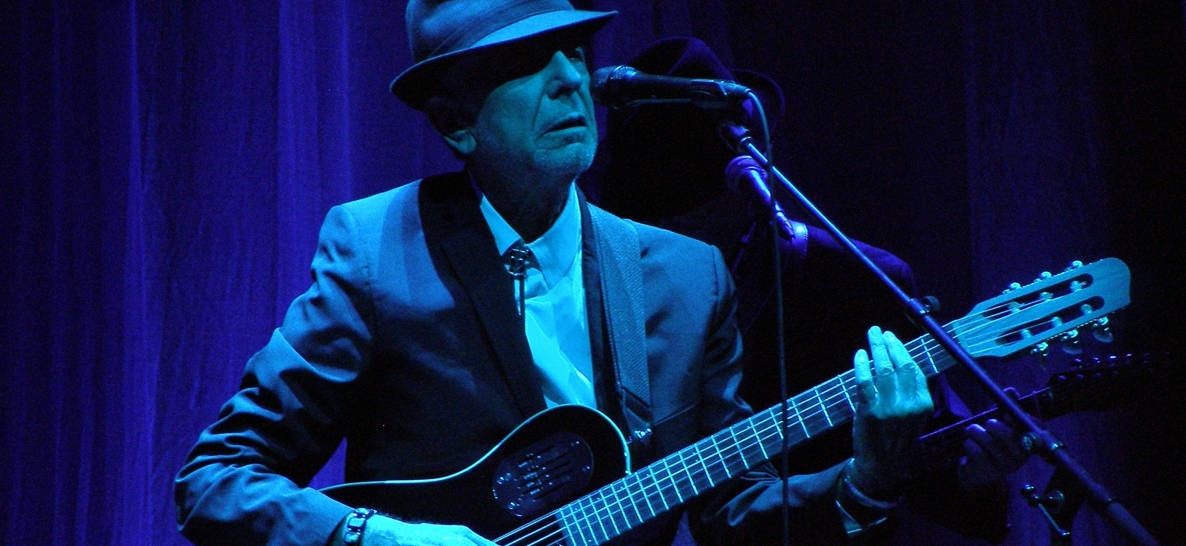
This year, grief is something our culture has had to deal with. We’ve lost so many influential figures, including Prince, David Bowie, Muhammad Ali and, most recently, singer and songwriter Leonard Cohen.
A little over a week ago, I had my own brush with the sting of death when a family friend died in an unexpected accident. He was only 23 years old—an engaged, employed, recent college graduate.
I found myself standing in our church at the end of a long receiving line, racking my brain, trying to find the words to say to his family at his wake.
I hugged his mother, father, sister and fiancée, who were all standing in a cluster at the front of a crowded room.
I tried to think of something encouraging to say—a word or a phrase or a Bible verse I could repeat that would instantly give this grieving family a sense of peace.
But I had nothing. I couldn’t think of anything helpful, useful or consoling. My mind went blank, and I struggled to find appropriate words.
“I’m so sorry for your loss,” I eventually mumbled to his family. Tears streaked across my face and theirs.
A week later, I sat on the floor of my apartment with a friend and tried to console her as she cried. Her grandmother was dying, and my friend wondered if she’d already unknowingly said goodbye for the last time. I handed her a box of tissues, and tears welled up in my own eyes.
These people—my friends and their families—are believers. I know they’re confident in the resurrection and life after death, but still, earthly loss and the grieving that accompanies it is so great.
Whether it’s our own family or friends or a celebrity we looked up to, the loss of another person still stings. And this doesn’t mean we don’t believe in Christ’s resurrection and victory over death so why does it still hurt?
Death reminds us of our own sin and mortality.
We’ll all face death, even the best of us.
“There are no innocent people in the world just waiting to hear the Gospel; there are guilty people who need the Gospel,” I heard David Platt, author and pastor, say in a sermon one Sunday morning.
Platt was speaking on unreached people groups at Atlanta’s Passion City Church that morning, but the simple, hard-to-swallow truth he shared applies to all.
I think death reminds us of this.
Death is a raw, shocking, unaccounted-for reminder that we’re a fallen people. We yearn to live forever, but that’s become impossible. We will never be good enough to stand in the presence of God—not on our own accord, at least—so we die.
It’s what we deserve.
Death hurts, even for those who believe in life after death.
For most of my life, I haven’t had to deal with death in the way others have, but the few times I’ve stood close enough to see it rear its ugly head, I’ve been shaken to the core.
Death is ugly, and it’s painful. It leaves unsightly scars. It rips apart friendships and leaves holes in families in a way that seems to have no regard for the living.
Death hurts.
Maybe that’s because, in the beginning, we weren’t created to die. We were created for quite the opposite, in fact. We were created to live with God forever (Genesis 2:15-17).
It’s because of this reality—the dichotomy between who we are and who we’re meant to be—that death feels so unnatural, especially to Christians.
It’s OK to mourn.
Of course, as Christians, we know death is not the end of our story. We believe we’ll be brought into a Kingdom without end at the end of our lives on Earth.
The times I have attended the funerals of fellow believers, I’ve heard often-repeated phrases, like “She is in a better place now,” and “We shouldn’t wish for him to return to this world.” And while these statements may be true, they’re not always helpful.
Death still hurts. It may not be the end, but it represents a stark and dramatic change.
In death, believers move from the temporary to the eternal, from the earthly to the heavenly.
Clearly, this is a change for the better, but for those of us who are still living in the temporary and earthly, it is hard to account for.
It’s hard to grasp the fact that we’ll never get coffee with so-and-so again.
He will never walk through our door again, and we’ll never have another conversation with her—at least, not in this life, in the same way or in the same body.
In seasons of loss, I’ve been comforted by the fact that even Jesus wept when he dealt with the loss of his friend, Lazarus (John 11:35).
It’s a gentle reminder to myself that it’s OK to weep, too. After all, Jesus did.
It’s OK for Christians to mourn the loss of the earthly because we know there’s more to life than death.
And in these moments of pain and grief, suffering and loss, we realize just how precious the gift of life is.






















